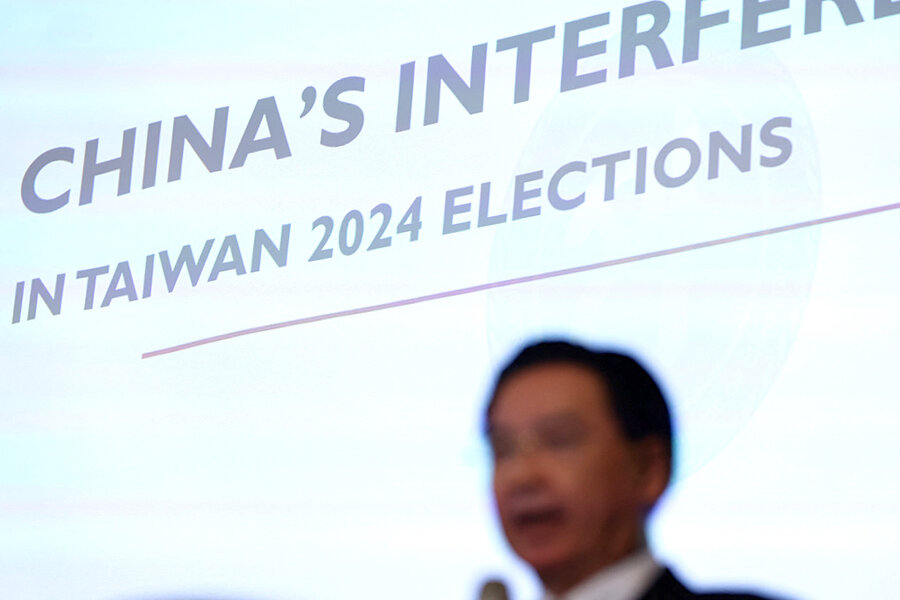Getting real on China disinformation
Loading...
In 2024, about half of the world’s population will vote in a near-record number of elections. One in particular deserves attention – as a model in trust-building. On Jan. 13, a new president will be elected in Taiwan, where citizens have been enlisted to fact-check suspicious news reports, especially ones spread by China.
China’s ruling Communist Party is trying harder than ever to sway the outcome of Taiwan’s election and break the morale of the Taiwanese in maintaining the island’s independence. By most accounts, truth seekers in Taiwan are winning against China’s massive disinformation campaign.
“In the face of such challenges, Taiwan’s civil society shines bright,” stated Moira Whelan, director of the democracy and technology team at the National Democratic Institute in Washington, in a blog post.
The lesson for other democracies is to rely on the integrity of each voter to discern claims on social media about politicians. Taiwanese voters, for example, can now use a chatbot created by civil society database Cofacts to check the accuracy of reports. The new service, open to anyone via a popular messaging app, helps counter China’s propaganda machine, which is now relying on the manipulative power of artificial intelligence.
Many fact-checking services in Taiwan are run by civil society. “We equip our people with the knowledge and tools to refute and report false and misleading information,” said President Tsai Ing-wen, who is finishing two terms since being elected in 2016.
Audrey Tang, the nation’s digital minister, describes these popular defenses against cyber mischief as “nerd immunity,” a play on herd immunity. “That is the main battlefield: The fear, uncertainty, doubt is designed to keep us up at night so we don’t respond to novel threats with novel defenses,” she told The New York Times.
Taiwan is the world’s top target for disinformation, according to the Digital Society Project. It is a practice-ground for China’s efforts worldwide. This election, said presidential front-runner Lai Ching-te of the ruling Democratic Progressive Party, will serve as a “testament to our commitment to democracy.”
After the election, officials in Taipei plan to issue a report on how well the country defeated Beijing’s efforts to influence the election, especially in pitting voters against each other. “We hope this [analysis] will soften the learning curve for fellow democracies in dealing with malign authoritarian influence,” wrote Joseph Wu, foreign minister, in The Economist.
The integrity of the election – and the trust among Taiwanese – will rely heavily on the integrity of citizens in seeking the truth during the campaign and at the voting booth.







